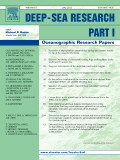
DEEP-SEA RESEARCH PART I-OCEANOGRAPHIC RESEARCH PAPERS
Scope & Guideline
Charting the course for future oceanographic discoveries.
Introduction
Aims and Scopes
- Ecological Dynamics of Deep-Sea Communities:
Research on the community structures, biodiversity, and ecological interactions among various organisms, including fish, corals, and benthic fauna, in deep-sea habitats. - Geochemical and Geological Processes:
Studies examining the geochemical composition of deep-sea sediments, hydrothermal systems, and the implications for biogeochemical cycles and mineral resources. - Oceanographic Processes and Climate Change:
Investigating the effects of ocean currents, temperature variations, and climate change on deep-sea environments and their biological communities. - Technological Innovations in Deep-Sea Research:
Development and application of new technologies and methodologies for deep-sea exploration, including remote sensing, underwater imaging, and autonomous vehicles. - Impact of Anthropogenic Activities on Deep-Sea Ecosystems:
Research focusing on the effects of pollution, deep-sea mining, and climate change on deep-sea organisms and habitats.
Trending and Emerging
- Impacts of Climate Change on Deep-Sea Ecosystems:
Increased focus on how climate change affects deep-sea habitats and species, including studies on temperature changes, ocean acidification, and shifting species distributions. - Microplastic Pollution and Its Effects:
Growing research on the presence and impact of microplastics in deep-sea environments, addressing their ecological consequences and potential hazards to marine life. - Technological Advances in Deep-Sea Research:
Emerging studies utilizing advanced technologies such as autonomous underwater vehicles (AUVs), machine learning for data analysis, and in situ sensors to enhance deep-sea exploration and data collection. - Biogeochemical Cycles and Ecosystem Functioning:
Research is increasingly focusing on the interconnections between biogeochemical processes and ecosystem functioning, particularly in relation to carbon cycling and nutrient dynamics. - Deep-Sea Mining and Resource Management:
As interest in deep-sea mining grows, studies addressing the ecological impacts of mining activities and sustainable resource management practices are becoming more prominent.
Declining or Waning
- Traditional Fishery Studies:
Research focusing solely on traditional fishery practices and assessments has seen a decline, as more studies are integrating ecological and environmental factors into their analyses. - Static Biodiversity Assessments:
Studies that provide only static biodiversity assessments without considering temporal changes or ecological interactions are becoming less common, indicating a shift toward more dynamic and integrative approaches. - Historical Sediment Analysis:
While still relevant, the focus on historical sediment analysis as a standalone topic is waning in favor of studies that combine historical data with contemporary ecological insights and modeling.
Similar Journals

LIMNOLOGY AND OCEANOGRAPHY-METHODS
Empowering researchers with essential aquatic methodologies.LIMNOLOGY AND OCEANOGRAPHY-METHODS is a premier journal published by WILEY, dedicated to advancing the understanding of methodologies in limnology and oceanography. With an ISSN of 1541-5856, this esteemed publication has established itself within the academic community, holding a solid Impact Factor and proudly ranking in the Q1 category for Ocean Engineering according to 2023 metrics. The journal, which has been converged since 2003, encompasses a broad scope that includes innovative techniques and applications essential for aquatic research and environmental monitoring. As a leader in the field, it is ranked #32 out of 105 journals in Ocean Engineering, placing it within the 70th percentile of its category. While it operates under subscription access, LIMNOLOGY AND OCEANOGRAPHY-METHODS serves as an invaluable resource for researchers, professionals, and students alike, providing critical insights that drive advancements in aquatic sciences.
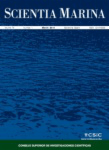
SCIENTIA MARINA
Innovating Research for Marine ConservationSCIENTIA MARINA, an esteemed journal published by the Consejo Superior Investigaciones Cientificas (CSIC) in Spain, focuses on critical studies within the fields of Aquatic Science and Oceanography. With an Open Access policy since its inception in 1998, this journal facilitates widespread dissemination of research findings, significantly enhancing accessibility for researchers, professionals, and students alike. Currently, SCIENTIA MARINA holds a Q3 ranking in both categories for 2023, demonstrating its commitment to advancing knowledge in marine and aquatic environments. With a convergence of research years from 1996 to 2024, it remains a pivotal platform for innovative research, encompassing various aspects of marine biology, ecology, and environmental science. The journal serves as an essential resource for scholars aiming to contribute to the understanding and preservation of marine ecosystems.
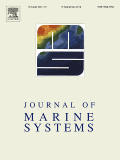
JOURNAL OF MARINE SYSTEMS
Exploring the Depths of Marine KnowledgeJOURNAL OF MARINE SYSTEMS, published by Elsevier, is a leading academic journal dedicated to advancing the understanding of marine systems through interdisciplinary research. With an impressive impact factor and ranking in the Q1 quartile across various categories such as Aquatic Science, Ecology, and Oceanography, this journal has established itself as an invaluable resource for researchers, professionals, and students interested in marine science and its applications. Since its inception in 1990, the journal has been a platform for high-quality studies, offering insights into complex marine ecosystems, their dynamics, and their interactions with human activities. Notably, it is indexed in major databases, which ensures visibility and accessibility for global audiences. Researchers are encouraged to share their findings and contribute to the ongoing dialogue about the health and sustainability of marine environments.

Oceans-Switzerland
Diving into the Science of Our OceansOceans-Switzerland, published by MDPI, is an esteemed open-access journal established in 2020, with a focus on providing a platform for the dissemination of high-quality research in the fields of Environmental Science and Oceanography. Based in the picturesque city of Basel, Switzerland, the journal seeks to foster a deeper understanding of oceanic processes and their implications for the environment through rigorous peer-reviewed articles. With an impact factor reflected in its 2023 Scopus rankings, placing it in the 56th percentile across its categories, Oceans-Switzerland continues to promote interdisciplinary collaboration and innovation, targeting a wide audience of researchers, professionals, and students keen on exploring the complexities of ocean systems. The journal's commitment to open-access policy ensures that groundbreaking research is available to a global audience, reinforcing its crucial role in advancing knowledge and shaping practices within the scientific community.
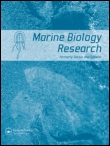
Marine Biology Research
Empowering the next generation of marine researchers.Marine Biology Research is a premier journal published by Taylor & Francis, focusing on the dynamic field of marine biology and its intersecting realms of aquatic science, ecology, and oceanography. Since its inception in 2005, this journal has served as a crucial platform for researchers and professionals to disseminate their findings, with a vision extending to 2024 and beyond. The journal is recognized with a Q3 quartile ranking in both Aquatic Science and Ecology, Evolution, Behavior and Systematics, underscoring its growing influence in these fields as evidenced by its Scopus rankings. Located in the United Kingdom, Marine Biology Research aims to foster collaboration and innovation through open access options, facilitating knowledge exchange among the academic community. With a steady commitment to advancing marine sciences, this journal is an invaluable resource for those dedicated to understanding and preserving our ocean ecosystems.
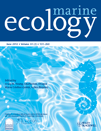
Marine Ecology-An Evolutionary Perspective
Pioneering Research in Aquatic EvolutionMarine Ecology-An Evolutionary Perspective, published by WILEY, is a renowned journal dedicated to advancing the understanding of marine ecosystems through the lens of evolutionary biology. Established in 1980, the journal has firmly positioned itself as a vital resource in the field, currently boasting a 2023 Scopus rank of #337 in Ecology, Evolution, Behavior and Systematics and a Q2 category ranking in Ecology. With a focus on original research and reviews that encompass a broad spectrum of marine ecological studies, this journal critically examines the mechanisms driving marine biodiversity and ecosystem dynamics. Researchers, professionals, and students alike benefit from the journal’s comprehensive insights and robust analyses, which are pivotal for fostering ecological knowledge and informing conservation efforts. Although currently not an Open Access publication, the journal remains accessible through various academic platforms, inviting the scientific community to engage with its vital contributions to aquatic science and the evolutionary processes shaping our oceans. With an impressive trajectory that extends until 2024, Marine Ecology-An Evolutionary Perspective continues to set benchmarks in marine research.

JOURNAL OF OCEANOGRAPHY
Bridging Academia and the Ocean's MysteriesJOURNAL OF OCEANOGRAPHY, published by Springer, stands as a leading academic journal in the field, with an impressive Q1 ranking in Oceanography for 2023. Since its inception in 1992, this journal has dedicated itself to the dissemination of high-quality research that spans a diverse array of topics within oceanography and earth sciences. With an ISSN of 0916-8370 and an E-ISSN of 1573-868X, it plays a crucial role in bridging the gap between academia and practical marine applications. The journal is indexed in Scopus, ranking #57 out of 145 in its category, reflecting its rigorous academic standards and the impact of its published works, reaching a notable ile in the 61st percentile. Located in Japan, the JOURNAL OF OCEANOGRAPHY provides a vital platform for sharing significant research findings that contribute to our understanding of marine environments, aiming to foster interdisciplinary collaboration among researchers, professionals, and students dedicated to marine science.
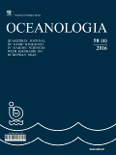
OCEANOLOGIA
Illuminating the Wonders of the OceanOCEANOLOGIA, a distinguished academic journal published by the Polish Academy of Sciences, Institute of Oceanology, serves as a pivotal platform for researchers and professionals in the fields of Aquatic Science, Oceanography, and Ocean Engineering. Established in 1973 and transitioning to Open Access in 2011, this peer-reviewed journal promotes the dissemination of high-quality research across its diverse scope of ocean-related topics, aligning with its commitment to advancing marine science. With a notable impact factor underscored by its positioning in the Q1 and Q2 quartiles of recognized categories, OCEANOLOGIA stands out with impressive Scopus Rankings, including 49/247 in Aquatic Science and 24/105 in Ocean Engineering, reflecting its significance in the global research landscape. The journal's dedication to publishing cutting-edge studies ensures that it continues to influence both academic discourse and practical applications in ocean-related fields, making it an essential resource for students, researchers, and professionals aiming to contribute to the advancement of oceanic studies.

Hidrobiologica
Connecting researchers to the pulse of our waters.Hidrobiologica is a pivotal academic journal dedicated to the field of aquatic sciences and ecology, published by UNIV AUTONOMA METROPOLITANA-IZTAPALAPA in Mexico. With a commitment to fostering research from diverse ecosystems, this journal encourages the dissemination of knowledge spanning aquatic environments, ecological interactions, and marine biodiversity. Although classified in the Q4 category across various relevant fields such as Aquatic Science and Oceanography, Hidrobiologica is focused on increasing visibility and engagement among scholars by providing a platform for innovative research that addresses contemporary ecological challenges. The journal's address reflects its deep-rooted commitment to local and regional aquatic research, yet it aims to resonate with a global audience. Researchers, professionals, and students alike will find value in the journal's scope, which spans from 2007 to 2024, making it a valuable resource for understanding advancements in aquatic studies. While not an open-access journal, it continues to be a significant contributor to the academic dialogue in aquatic sciences.

Ocean Science Journal
Navigating the Frontiers of Marine ResearchOcean Science Journal, published by the Korea Institute of Ocean Science and Technology (KIOST), is a pivotal resource for scholars and practitioners in the field of oceanography. With the ISSN 1738-5261 and E-ISSN 2005-7172, this journal presents cutting-edge research from 2006 to 2024, bridging fundamental and applied ocean sciences. Based in South Korea, with its headquarters located in Busan, the journal has achieved a commendable Scopus rank of #72 out of 145 in the domain of Earth and Planetary Sciences, placing it in the 50th percentile among peer publications. Classified in the Q3 category of the 2023 Oceanography rankings, Ocean Science Journal offers a platform for innovative studies that advance understanding of marine environments and promote sustainable ocean practices. While it does not operate under an open access model, readers and contributors can expect high-quality, peer-reviewed material that addresses pressing oceanic challenges and developments. This journal serves as an essential tool for researchers, professionals, and students committed to fostering marine science and ocean technology.